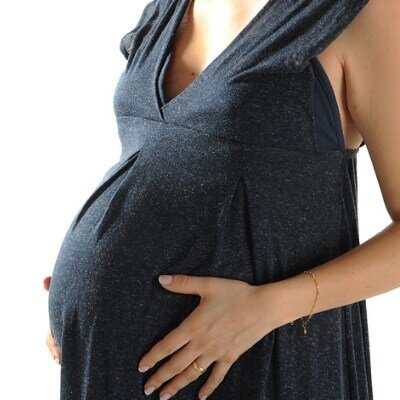Open Access Government: Treatments for Postnatal Depression
June 12, 2019 - Smart TMS

The Open Access Government website features advice from Dr Leigh Neal on the treatments available for Postnatal Depression.
According to research, 1 in 10 women suffer from postnatal depression (PND) within the first year of having a baby. But, many people don’t know that men can be affected too. Research suggests up to 1 in 10 men can also suffer from depression after becoming new fathers.
Symptoms can be devastating and impact on well-being and relationships, even affecting ability to bond with the baby.
Postnatal depression is not the same as the baby blues. It’s completely normal to experience the baby blues, though it should only last a few days after baby is born. Postnatal depression is a state of clinical depression with constant feelings of low mood and sadness. You might also lack energy and feel extremely tired, which isn’t helped by being woken in the night. Birth can be a traumatic experience for both mothers and their birth partners, too.
Postnatal depression can be written off as tiredness or a struggle with change in lifestyle, but in reality it is much more than that. Midwives, GPs and health visitors are now generally well informed and alert for the signs. A good support network can also be an important part of recognising when a low mood could be something more.
Help For Postnatal Depression
There are a range of treatments and techniques which could help:
- Self-help– talk to family and friends about how you feel and how they could help. Eat well, exercise and sleep as much as you can. Try to take time for yourself to do things you enjoy.
- Psychological therapy– GPs may recommend or refer patents for talking therapies such as CBT (cognitive behaviour therapy)
- Medication– antidepressants can be beneficial where self help and talking therapies have been ineffective. Some are not suitable while breastfeeding and they can also cause side effects. Dr Leigh Neal says:
“Studies evaluating the safety of a particular type of antidepressant (SSRIs) in breastfeeding have demonstrated detectable antidepressant levels in breast milk for all antidepressants, but undetectable infant serum levels for the medication. No short-term adverse events have been reported with the use of these drugs.
While these findings are consistent across multiple laboratories and studies, the studies are small and the long-term effects are unknown. Further research is needed to determine the safety of these medications in breastfeeding with control for maternal depression.”
- Transcranial Magnetic Stimulation – TMS treatment has been proven to be effective in the treatment of a range of mental conditions including depression, anxiety and OCD. This treatment is medication-free, so no chemicals are passed to the baby through breastmilk. Dr Leigh Neal says:
“Initial results from studies of TMS in postnatal depression are promising in terms of the treatment of depression and the health of the baby and mother”.
TMS For Perinatal Depression – Results
Dr Leigh Neal says:
“In a study of the effectiveness of TMS in the treatment of post-natal depression, nine antidepressant-free women with post-natal depression were given TMS treatment over four weeks.
“Significant improvement in the depression was noticed after only two weeks of treatment, with eight out of nine patients remitting from depression after four weeks, and seven out of these eight patients remaining in remission after five months.”
He adds that a review of many studies suggests that transcranial magnetic stimulation therapy can increase cognitive function in patients suffering from major depression, which may be beneficial in treating postnatal depression:
“In 2012 a randomized, placebo-controlled, double-blind study evaluated the impact of TMS on clinical, cognitive, and social performance in women suffering with postpartum depression.
“Fourteen patients were randomized to receive 20 sessions of sham TMS or active TMS. The active TMS group showed significant improvement in depression 2 weeks after the end of TMS treatment in week 6.
“This study indicated that TMS has the potential to improve the clinical condition in postpartum depression, while also producing gains in social and cognitive function.”
Read more at: https://www.openaccessgovernment.org/maternal-mental-health-postnatal-depression/64731/
Dr Leigh Neal
 Dr Leigh Neal is Co-Founder and Medical Director of Smart TMS.
Dr Leigh Neal is Co-Founder and Medical Director of Smart TMS.
He has worked as a Consultant Psychiatrist since 1994 and is highly experienced in the treatment of mental health conditions including chronic depression, addiction and PTSD.
He is an expert in neuromodulation and a member of the International Neuromodulation Society.
Dr Neal trains and oversees our team of clinicians, who assess suitability, prescribe TMS and review treatment.
Smart TMS Clinics
Smart TMS was established in 2015, dedicated to providing TMS treatment in London at their South Kensington/Brompton Cross centre. The company opened a second clinic in Birmingham in September 2017 and also has a base in Northampton. The first Irish clinic was opened in Dublin in October 2017 and in 2018, Smart TMS opened further locations in Manchester, Bristol and Havant (South Coast).
Contact Us
For any other queries or for patients wishing to book an appointment at one of our UK clinics, please contact us:
- Tel: 0345 222 5678
- Email: info@smarttms.co.uk
Irish patients may contact Our Dublin Clinic direct on:
- Email: info@smarttms.ie
- Tel: 353 (01) 254 2514
- Website:smarttms.ie










